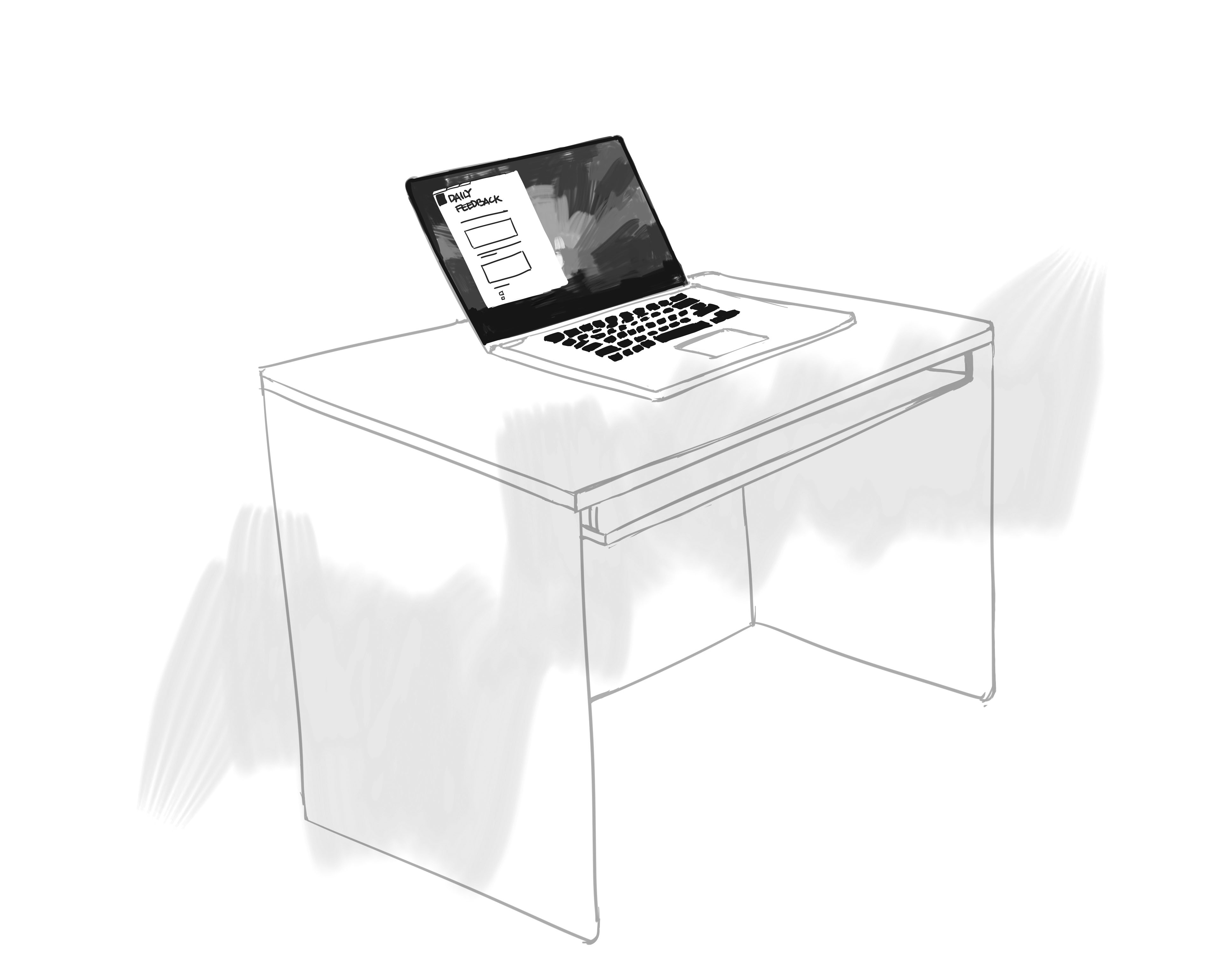
The Google Form is titled Daily Feedback. These are its sections: General, Internet, People, Academics, Projects and Lifestyle (Sex, Sleep & Food) Caveman Edition. “General” asks you to rate your day on a scale of one to ten, write a paragraph about what you’re grateful for and check some boxes on whether you’ve taken your pills and reviewed your to-do list. “Internet” asks how many article tabs remain unread, how many conversation tabs remain open and how many people on Facebook you’ve wished a happy birthday to. In “People”, you rate your social life on a scale from hermit-like to extroverted, check boxes about responding to emails and writing follow-up messages to people you hung out with and tally the times you’ve been late and the times you’ve responded to people who asked for help. “Academics” has more checkboxes about whether you’ve done your readings, and “Projects” asks about the number of photographs you’ve taken, and the number of hours you’ve spent coding, writing, editing and reading psych papers. “Lifestyle (Sex, Sleep & Food) Caveman Edition” asks how many times you’ve masturbated, watched porn, had sex, helped H orgasm, napped, overslept, eaten, meditated, suffered anxiety attacks and watched Netflix.
My friend sent me the Form this summer (H is his girlfriend). He has programmed it to pop up in his Internet browser every night at 11:00, and he self-imposes a five-minute limit to complete it. I made a copy and changed it completely, renaming my version “Daily Portrait.” To a greater extent than his, my Form shows an obsession with remembering. What if I forget all about the poem I read today and how I scribbled in the margins while reading it that it has some of the most beautiful sentences I’ve ever encountered? I’m old enough, at 20, to be shocked by how much I’ve already forgotten. I don’t remember the plot line of Malory Towers, a television series that made going to boarding school a main, ultimately unsuccessful, childhood dream of mine. My Facebook newsfeed constantly throws up faces I never thought I’d forget, but did. I attended Mass recently with a friend, and every closing-of-the-eyes and Lord, hear our prayer brought back old feelings of annoyance — the anger towards my convent-school nuns that had defined so much of my time there, and that I hadn’t thought about in years till Mass a week ago.
And so, long-answer questions in my Form ask me to record the new people I meet, great things I read and ten “Daily Gratitudes” (which usually ends up being a list of things I did that day, gratitude-worthy or not). The responses, Google tells me, are saved in a spreadsheet. I’ve never seen it, but I imagine I’ll open it years later, on one of those days when you call in sick because you don’t remember why you’re doing what you are. “I think we are well-advised to keep on nodding terms with the people we used to be,” writes Joan Didion in On Keeping a Notebook, “Otherwise they turn up unannounced … at 4 a.m. of a bad night and demand to know who deserted them, who betrayed them, who is going to make amends.” A decade from now, I’ll read how on Oct. 7 I went to a one-night-only photo show in a wooden garage, attended a pink-lit jazz concert in a dorm room and stayed up till 5 a.m. with a friend talking about the pressure of having a “Yale-worthy” career — and I’ll see whether I gave in and whether I found plenty more nights like that. The pressure of having a “Yale-worthy” career is linked to guilt over the privilege of being here and a fear that everything I’m doing is selfish, unnecessary for any future efforts directed at things outside of me. This guilt leads to a neurotic need to “make the most” of Yale, and this fear adds to my obsession with “remembering” in the hope that, years later, I’ll be able to look at things I’m doing now and reassure myself that they did indeed help me with unselfish goals.
The Form has more mundane uses too. Multiple-choice questions collect data on habits: which meals I ate, how many glasses of water I drank, and how much I slept. Checkbox questions serve as reminders, asking whether I exercised, called or texted home, well-wished my Facebook friends on their birthdays and looked at the news. The Form, I guess, is a concise statement of the things I value. Tracking its evolution reveals how those things change. Recently, for instance, I deleted questions on how many calories I ate because I realized I needed to have a healthier relationship with food.
One day in a class I took last year called Poetry and Faith, our professor asked how many of us prayed. I don’t, but I felt like raising my hand and mentioning the Google Form. We had discussed two purposes of prayer apart from communing with God: imposing a ritual and encouraging self-reflection. My Google Form does both.







